
Maria da Graça Xuxa Meneghel is a Brazilian presenter, actress, singer, and businesswoman. Known as the "queen of the short ones", Xuxa built the largest Latin and Southern American children's entertainment empire. In the early 1990s, she presented television programs in Brazil, Argentina, Spain and the United States simultaneously, reaching around 100 million viewers daily. Xuxa has sold over 30 million copies of her records worldwide, which makes her the highest-selling Brazilian female singer. Her net worth was estimated at US$100 million in the early 1990s. Also successful as a businesswoman, she has the highest net worth of any Brazilian female entertainer, estimated at US$400 million.

Xuxa is an American children's television series hosted by Xuxa Meneghel that aired in first-run syndication between September 13 and December 10, 1993, for a total of 65 episodes. The program, which was based on Rede Globo's Xou da Xuxa, was created by Thomas W. Lynch and Marlene Mattos, with MTM Enterprises handing production. The show works with several blocks, where in each block, a game is presented. The program also received famous people or diverse professionals, as well as educational lessons.

This is the discography of Xuxa, a presenter, actress, singer and former model from Brazil. The singer has released twenty-eight studio albums, thirteen compilations, eight Spanish-language albums, over two hundred music videos and one hundred and ten singles. Xuxa became notorious after presenting the Clube da Criança program on the extinct Rede Manchete between 1984 and 1985, and soon after embarked on her first studio albums and soundtracks: Clube da Criança and Xuxa e Seus Amigos. However, it was with the albums of the Xou da Xuxa collection, which had significant sales that she achieved success.

Xuxa 2 is the eighth studio album and the second in Spanish language Brazilian recording artist Xuxa. The album was released on April 25, 1991, by BMG. The tracks did not undergo major changes, the instrumental sounded more pleasant and with a more Latin beat. The song "Crocki Crocki" is the only one that does not belong to the last two albums, but to Xegundo Xou da Xuxa (1987). The album was produced by Michael Sullivan and Paulo Massadas. The direction of the voice and the versions of the songs were made by Graciela Carballo.
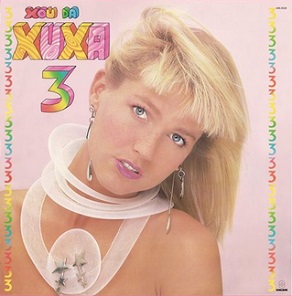
Xou da Xuxa 3 is the fourth studio album by Brazilian recording artist Xuxa. It was released on June 30, 1988, by Som Livre. Xuxa' best-selling album, has sold over 5 million copies in Brazil, making it the best-selling brazilian albums of all time, as well as the best-selling album by a female artist in the country.

Xegundo Xou da Xuxa is the third studio album by Brazilian recording artist Xuxa Meneghel, released on June 23, 1987 by Som Livre. The album sold over 2 million copies. It is one of the most popular albums of Xuxa's career, surpassing sales in the previous album Xou da Xuxa (1986).
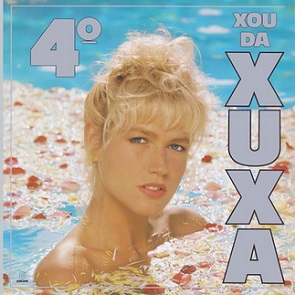
4º Xou da Xuxa is the fifth studio album by Brazilian recording artist Xuxa Meneghel, released on 11 July 1989. This LP was the fourth album of the collection Xou da Xuxa of a total of seven.

Xou da Xuxa is the second studio album by Brazilian recording artist Xuxa. It was released on 30 June 1986 by Som Livre, along with her television show in Globo.

Xuxa 5 is the seventh studio album by Brazilian recording artist Xuxa Meneghel. It was released on August 1, 1990, by Som Livre. It was the fifth album in the series Xou de Xuxa. The best-known songs from this album are "Pinel Por Você", "Trem Fantasma" and mainly "Lua de Cristal". The album sold more than 1 million copies in Brazil.

Xou da Xuxa Seis is the ninth studio album by Brazilian recording artist Xuxa Meneghel, released on September 12, 1991, by Som Livre. This album was the sixth album in the "Xou da Xuxa" collection, which totals seven. In this album are included songs like "O Xou da Xuxa Começou", "Novo Planeta" and "Hoje é Dia de Folia". The album sold more than 1 million copies.

Xou da Xuxa Sete is the eleventh studio album by Brazilian recording artist Xuxa Meneghel. It was released on October 2, 1992, by Som Livre. It was the last album of the series Xuxa Show.

Xuxa was the twelfth studio album by Brazilian recording artist Xuxa Meneghel. It was released in July 1993 by Som Livre. The album is composed only of songs that were left out of their previous albums.
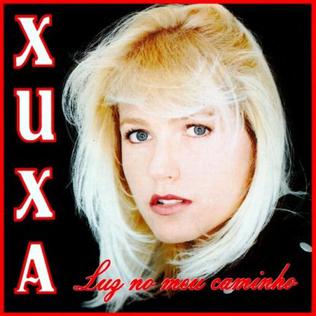
Luz no Meu Caminho is the sixteenth studio album by Brazilian recording artist Xuxa Meneghel. Its released in October 1995, by Som Livre.
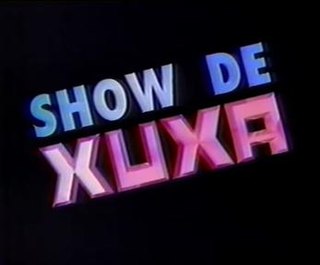
El Show de Xuxa was an Argentine Children's television series hosted by Xuxa, between May 6, 1991 and December 31, 1993 and directed by Marlene Mattos.

Xou da Xuxa was a Brazilian children's television series directed by Marlene Mattos, and hosted by Xuxa Meneghel. It premiered on Rede Globo between 30 June 1986 and 31 December 1992, with 2000 editions completed. Xou replaced the Balão Mágico program. Later, it was repeated between January and February 1993, in the transition of the changes of programming of the transmitter. Then, Globo replaced the reprises of the Show by the reruns of the Mallandro Show, presented by Sérgio Mallandro. At the same time, the children's program Mundo da Lua TV Cultura, was also on display. In the daily grid of TV Globo, the Xou of Xuxa was replaced by TV Colosso, while the presenter prepared its program displayed on Sundays.
Xuxa Park was a Spanish children's television series hosted by Xuxa Meneghel, based on the Xou da Xuxa, produced by Michael Jay Solomon and screened from March 12 to June 18, 1992 by the Madrid network Telecinco, the third largest broadcaster of Spain in audience, totaling 15 episodes. The show worked with several blocks, where in each block a game is presented, counting on the participation of the Paquitas and the character Topo Gigio, a cartoon doll of a mouse that was very popular in the 1960s in Brazil and in the world.

Xuxa só Para Baixinhos 2 is the twenty-fourth studio album by Brazilian recording artist Xuxa, released on September 5, 2001, by Som Livre. It is the second album in the collection Só Para Baixinhos.
"Ilariê" is a song recorded by the Brazilian singer Xuxa, released on June 30, 1988 by Som Livre as the lead single from her fourth studio album, Xou da Xuxa 3 (1988). "Ilariê" debuted at the top of the Brazilian radio stations, reigning for 20 consecutive weeks.
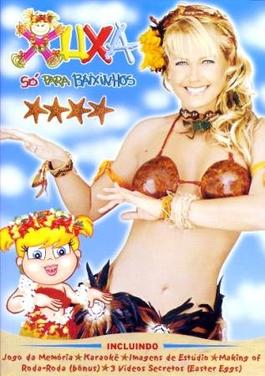
Xuxa só para Baixinhos 4 - Praia is the twenty-sixth studio album by Brazilian recording artist Xuxa, released on July 25, 2003, by Som Livre. It is the fourth album in the collection Só Para Baixinhos.
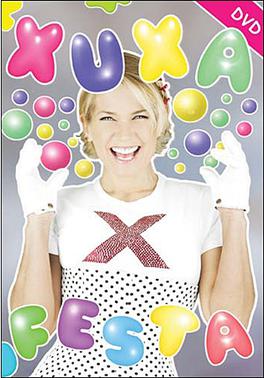
Xuxa só Para Baixinhos 6 or Festa is the twenty-ninth studio album by Brazilian recording artist Xuxa, released on December 9, 2005, by Som Livre. It is the sixth album in the collection Só Para Baixinhos.


















